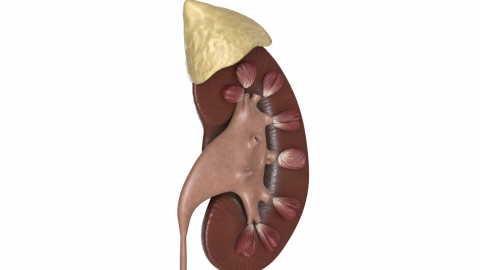What causes adrenal tumors?
Adrenal tumors may be caused by environmental factors, genetic factors, gene mutations, endocrine disorders, long-term chronic inflammation, and other causes. If abnormalities occur, timely medical consultation is recommended. Specific analyses are as follows:

1. Environmental factors: Long-term exposure to chemical carcinogens, radiation, and other harmful environmental substances may damage adrenal cells and trigger tumor development. Doctors generally recommend removing oneself from such harmful environments.
2. Genetic factors: Inherited genetic defects related to adrenal tumors within a family may increase an individual's risk of developing the condition. Individuals with a family history are advised to undergo regular adrenal-related examinations for early detection and intervention.
3. Gene mutations: Genetic mutations in cells can lead to abnormal proliferation of adrenal cells, resulting in tumor formation. This is often accompanied by symptoms such as abnormal hormone secretion, metabolic disturbances, and local compression. Surgical removal of the tumor under medical guidance is recommended. After surgery, medications such as mitotane tablets, etoposide soft capsules, and cisplatin injection may be used to prevent recurrence.
4. Endocrine disorders: Imbalance in hormonal secretion may chronically stimulate adrenal tissue, potentially inducing tumor formation. Maintaining regular作息 (daily routines), avoiding staying up late, and minimizing triggers of endocrine disruption are recommended. Lifestyle adjustments are encouraged, and when necessary, medications such as propylthiouracil tablets, methimazole tablets, or propranolol hydrochloride tablets may be taken under medical supervision.
5. Long-term chronic inflammation: Prolonged inflammatory stimulation in the adrenal region may lead to abnormal cell proliferation and tumor development, often accompanied by symptoms such as dull local pain, fatigue, and fever. The primary treatment involves using anti-inflammatory medications such as prednisone acetate tablets, cefixime dispersible tablets, and indomethacin enteric-coated tablets as directed by a physician, along with regular follow-up exams to monitor disease progression.
In daily life, individuals should avoid exposure to harmful substances, maintain a healthy diet, exercise appropriately, strengthen the body's resistance, and undergo regular health check-ups. If any abnormal symptoms related to the adrenal glands occur, prompt medical evaluation and treatment are essential.







